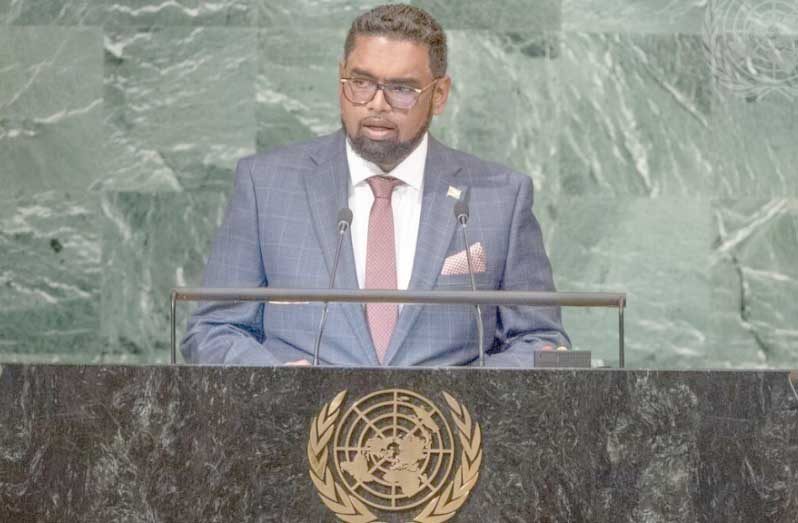-Calls for global unity amid rising conflict, inequality and climate crises
President Dr Irfaan Ali has called for a renewed global commitment to the principles of the United Nations (UN) Charter, describing it as a vital guidepost for cooperation and the collective pursuit of a better world.
The Head of State made these remarks in a video message, on Tuesday, commemorating the 80th anniversary of the signing of the UN Charter.
Dr Ali extended congratulations to the UN for upholding its mission and values across generations and continents.
“The UN Charter is more than parchment and ink; it is the bedrock of global cooperation, a moral compass forged to steer humanity towards peace, justice and shared progress,” President Ali said.
He added that it is a clarion call to protect the dignity of all peoples, to uphold the rule of international law and to champion human rights without exception or excuse.
Eighty years after its creation, the President noted, the world still depends on the Charter’s guidance amid the rise of prolonged conflicts, climate catastrophe, growing inequality and energy and food insecurity.
As such, the principles of the Charter of Peace, Freedom, Solidarity, and Development remain the best hope.
“The Charter’s enduring promise is that dialogue must triumph over discord, peace must prevail over provocation and power, right must rise above might, and collective action must outpace narrow self-interest,” he asserted.
President Ali stressed that this milestone should remind the world that the United Nations was created not for the easy times, but for moments such as these.
“May the Charter of the United Nations continue to serve as a lighthouse for humanity, an unshakable pillar of resolve, cooperation, and of the unfaltering belief that together, we the community of nations, can collectively shape a better world,” he said.
The UN Charter, signed on June 26, 1945, was born out of a bold global commitment to dialogue, diplomacy, and cooperation.
It outlines the structure, functions, and principles of the United Nations and officially came into force on October 24, 1945, after ratification by the five permanent members of the Security Council and a majority of member states.



.jpg)








